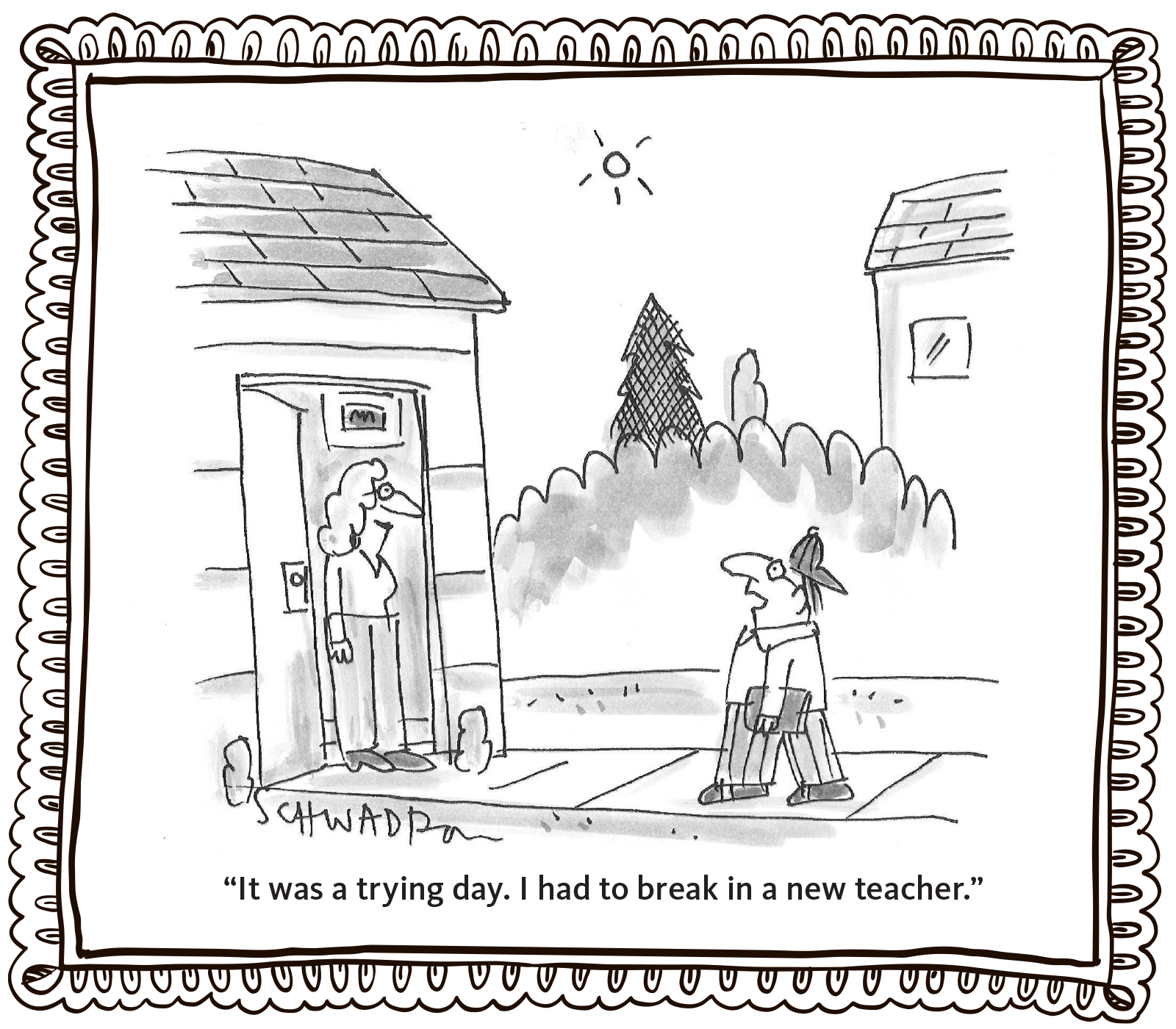A paraprofessional approached me one afternoon perturbed with a young boy who had just said “%&#@ you!” after a rowdy classmate accidentally bumped into him, knocking him down. She exclaimed, “Where do these kids learn to talk this way?!”
Despite her shock and horror at the language coming out of the seven-year-old’s mouth, the aide was actually asking the right question.
Even though it was not part of my official role as a school counselor, I served as a pinch hitter for discipline in my elementary school (preschool–sixth grade) for 25 years. As a result, I was often the first to see, hear, and intervene in all kinds of altercations, misbehaviors, and crises.
During this time, I quickly learned not to assume that students had already developed basic behavior skills at home. I began to understand that most children, especially at the elementary level, come to school ill-equipped with skills such as self-control; self-discipline; conflict resolution; and time, stress, and anger management. With this in mind, I knew I would have to start viewing most misbehaviors, especially early infractions, as teaching opportunities in order to effectively deal with the discipline problems in my building.
For example, when I met with the young boy who swore at his classmate, I explained that although he may hear swear words used at home, even by adults, they are not words that we use in school. I told him that his parents most likely would not use swear words at work either. These words are impolite and usually slip out when a person is angry. Instead of swearing when we get angry, we need to try to use words that tell the other person specifically why we are upset. I encouraged him to think of other words he could say the next time something like this happens. Then, we role-played to find other words that are more socially acceptable, such as, “Hey! You knocked me over. Please be more careful! Would you help me pick this stuff up?”
For the most part, the older students in my building had developed some social skills. However, situations would still arise that presented opportunities for teaching skill development…
One year, some middle school boys were bothering female classmates by making inappropriate suggestive comments about their bodies, getting too close to them, and teasing them with sexual undertones. In response, I joined forces with a male teacher to teach the misbehaving boys about sexual harassment. We explained the boundary lines and how harmful going outside of them can be to their classmates. A few of those boys were on the verge of tears because they had never considered how vulnerable they made the girls feel. We also shared the eye-opening revelation that this behavior was the opposite of what would endear them to the girls they liked! Thankfully, sexual harassment ceased to be an issue in that grade for the rest of the school year.
Viewing discipline as a teaching opportunity allowed us to teach empathy and respect for other’s boundaries as well as warn rather than punish for the first offense. However, anyone who offended in the same way after receiving instruction would face specific consequences that were spelled out in advance.
As a rule, when faced with a discipline issue, I found it helpful to ask myself, Does this student have the skills needed to handle this situation? If the answer was no, then I would also ask, How can we help teach them the skills they lack?
Finding the answers to these questions allows us as educators to graciously help our students learn from their mistakes in the same way our Heavenly Father does with us—by not just simply punishing us, but by graciously showing us how to navigate life’s mess-ups. Certainly, God does allow us to experience consequences for our sins, as appropriate. But His heart is to guide us in an ongoing journey of becoming who He created us to be. As one of the primary guides for our students, we can impact lives powerfully by adopting the same perspective.
Sally Newton, a recently retired elementary school counselor, spent 23 years at Smethport Area School District. Sally lives in North-Central PA, where she enjoys spending time outdoors with family and packing shoeboxes for Operation Christmas Child.
